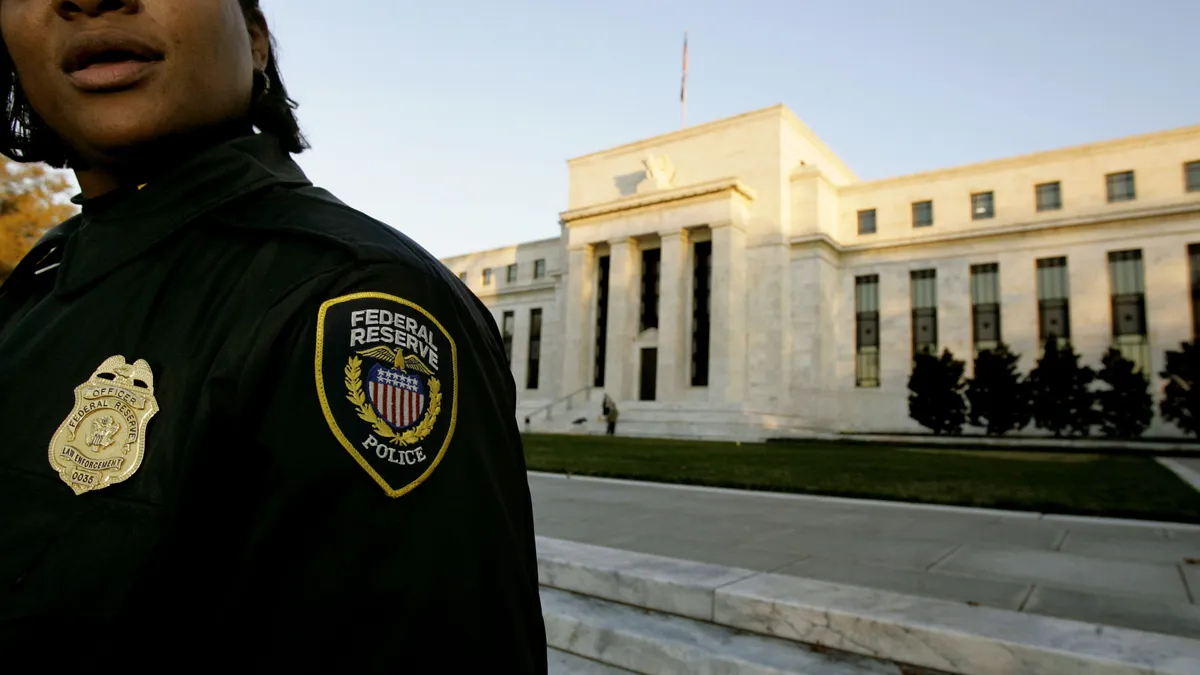The Federal Reserve proposed guidelines Friday for how large banks should manage climate-related financial risks, following similar guidance from the Office of the Comptroller of the Currency and the Federal Deposit Insurance Corp. released within the past year.
The Fed’s proposed rules, which would guide banks with more than $100 billion in assets to incorporate climate-related financial risks into their planning, were approved for public comment by the central bank’s board of governors in a 6-1 vote.
The financial impacts of climate change, the Fed wrote, “pose an emerging risk to the safety and soundness of banking organizations and the financial stability of the United States. Banking organizations are likely to be affected by both the physical risks and transition risks associated with climate change.”
“For example, chronic flooding or wildfires may pose a risk to the value of the collateral that a banking organization has taken as security against its loans,” the Fed wrote. “Technological innovations in the production, storage and transport of energy could decrease the value of assets dependent on older technologies, resulting in mark-to-market losses on a banking organization’s trading portfolios or reduced cash flow of certain borrowers.”
The Fed's plan would mandate big banks’ consideration of climate-related financial risks in their audits, risk management plans and liquidity buffers.
Additionally, it would require banks to engage in climate-related scenario analysis, defined as exercises that assess how changes in the economy, changes in the financial system, or physical hazards resulting from climate change impact the financial institution.
Fed Gov. Christopher Waller, a Republican, was the sole dissenter.
"Climate change is real, but I disagree with the premise that it poses a serious risk to the safety and soundness of large banks and the financial stability of the United States,” he said in a statement published alongside the proposed rules. “The Federal Reserve conducts regular stress tests on large banks that impose extremely severe macroeconomic shocks and they show that the banks are resilient."
Another of the central bank board’s Republicans, Gov. Michelle Bowman, voted in favor of the plan but also released a statement indicating her reservations and that the board should consider "the costs and benefits of any new expectations."
“The Board has long expected financial institutions to meet robust risk management standards … The new principles contemplate additional obligations on firms to monitor and measure a broader set of climate-related risks, over indefinite time horizons,” she wrote. “While I support seeking public comment, this vote does not indicate my support for the finalization of this guidance.”
The proposal will be open for public comment for 60 days.












